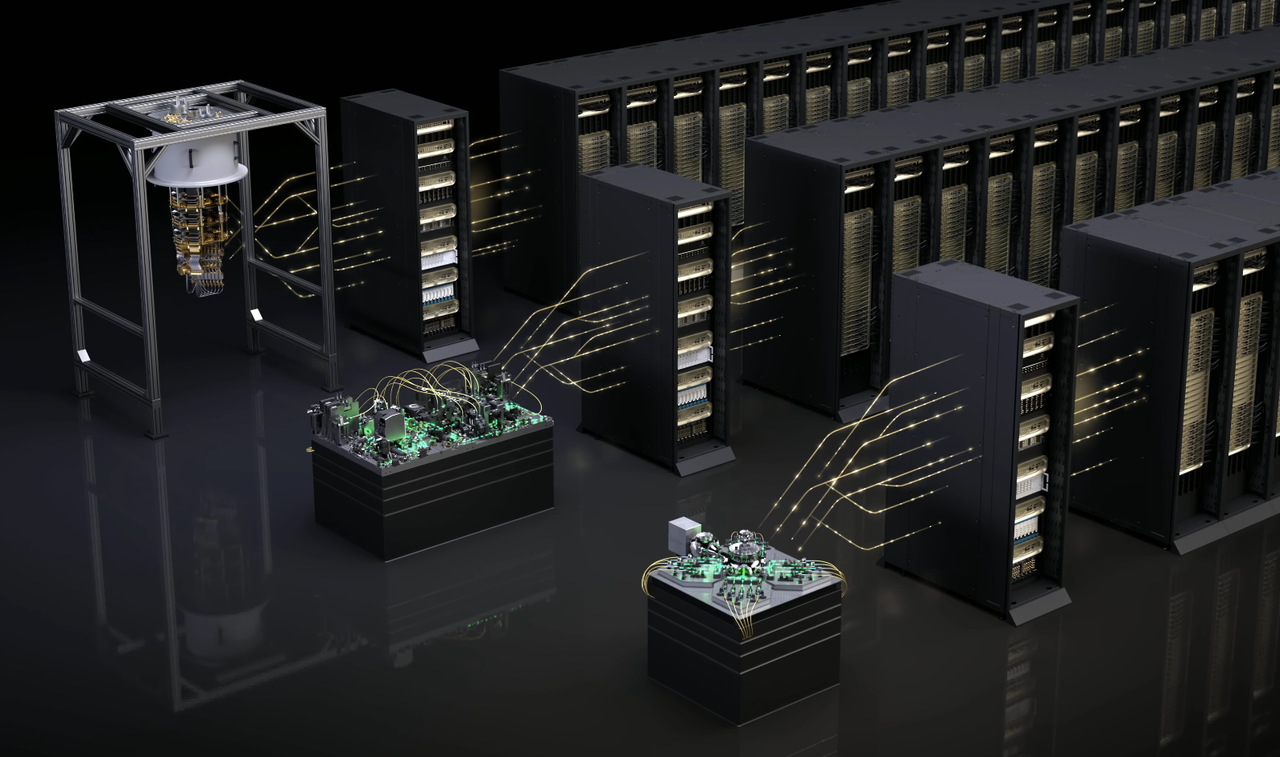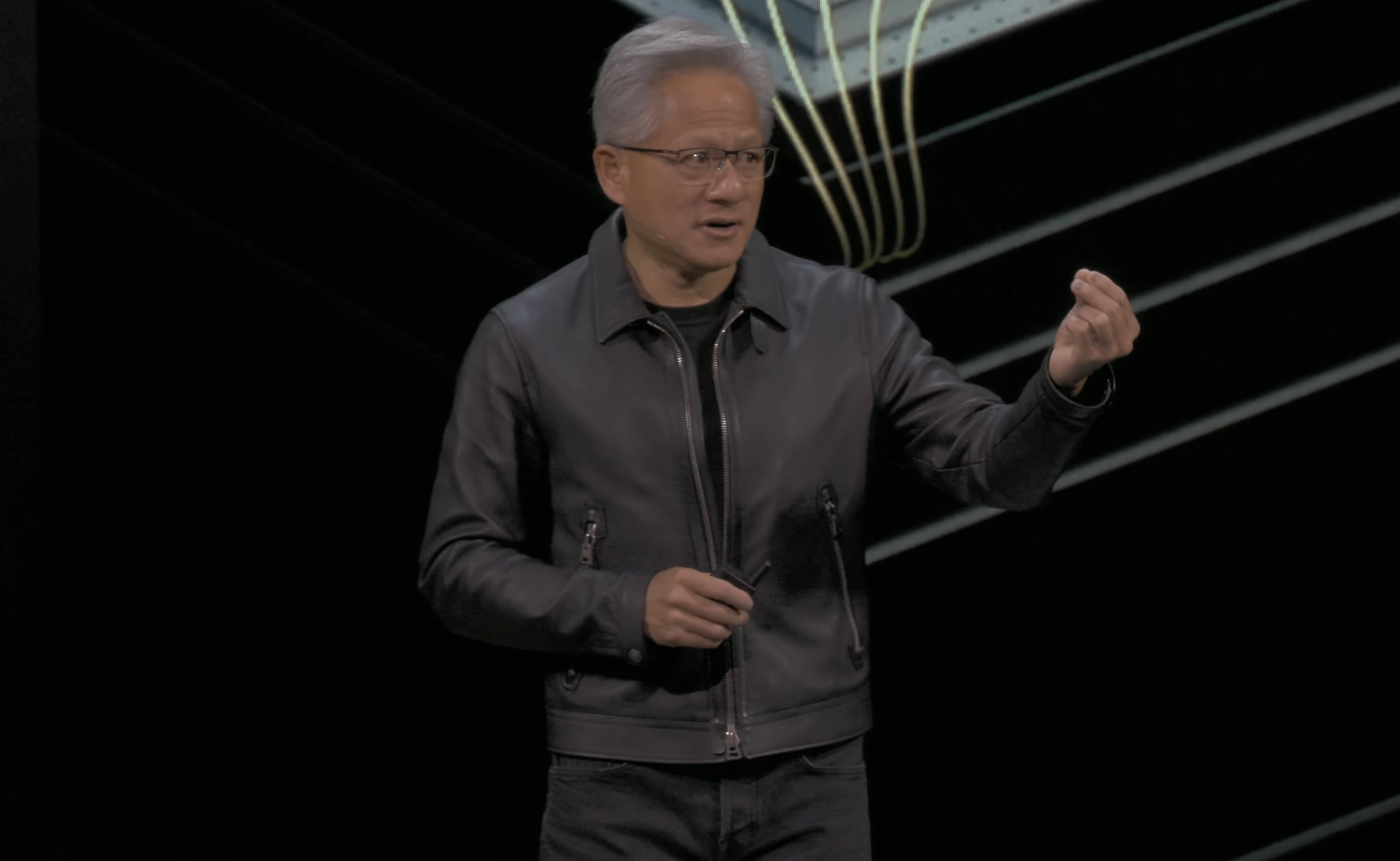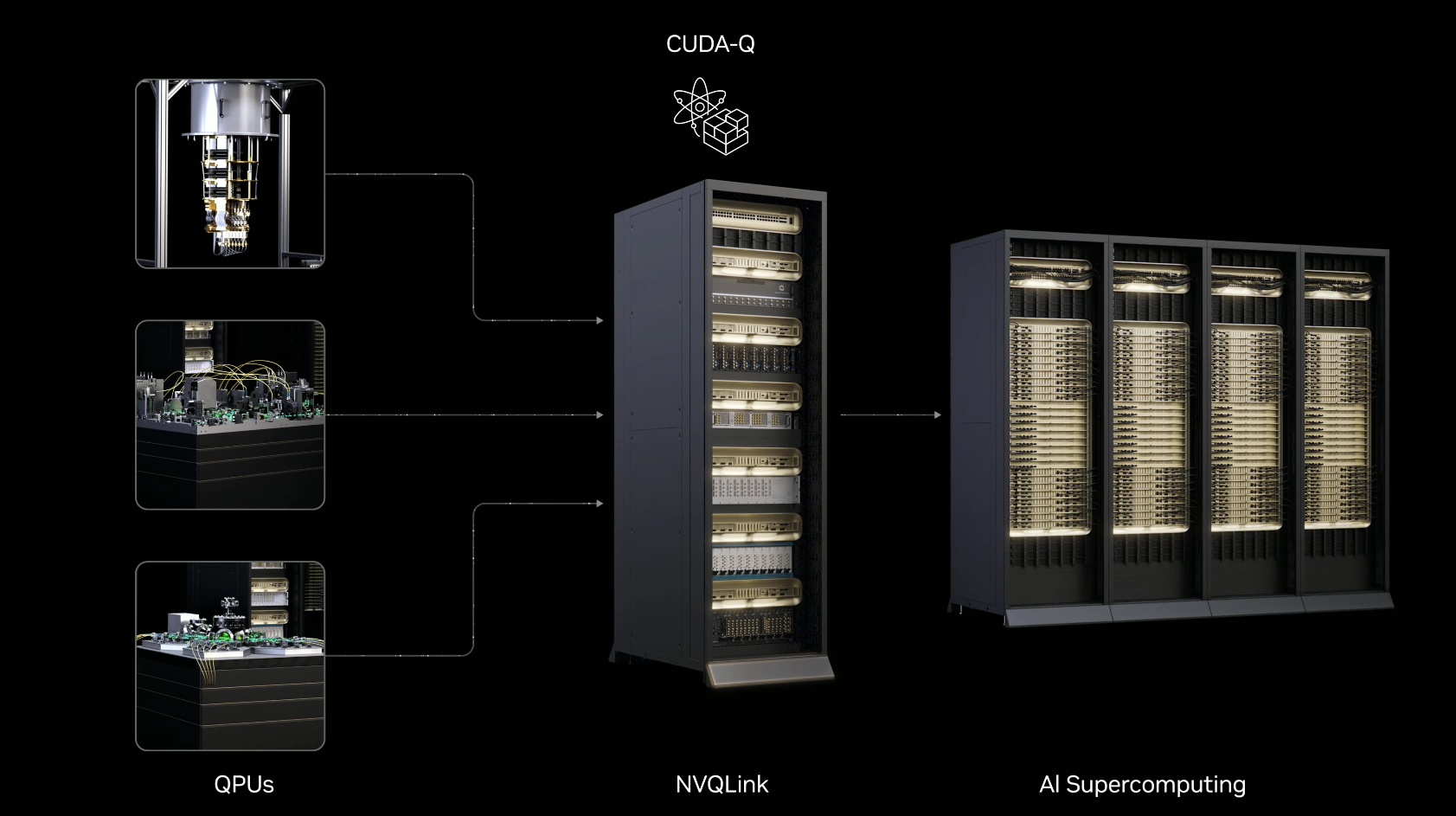
AI domination is seemingly not enough for Nvidia. Now the world's most valuable company is turning its attention to quantum computing. Give it up for the future of "accelerated quantum computing platforms."
At least, that's how Nvidia's CEO, he of the signature leather jacket, Jensen Huang sees things. During yesterday's GTC keynote presentation, Huang explained how it was—who'd a thunk it?!—Nvidia GPUs that would unlock the potential of quantum computing.
Huang outlined how the individual bits of quantum computing, known as qubits, are inherently unstable, only surviving for a few hundred operations. But "solving meaningful problems requires trillions of operations," Huang said.
"The answer is quantum error correction. Measuring disturbs a qubit which destroys the information inside it. The trick is to add extra qubits—entangled—so that measuring them gives us enough information to calculate where errors occurred without damaging the qubits we care about."
In this scenario, hundreds of entangled qubits combine to form a single, error-corrected logical qubit inside a QPU or quantum processing unit.

"We now realise that it's essential for us to connect the quantum computer directly to a GPU super computer, so that we can do the error correction, so we can do the artificial intelligence calibration and control of the quantum computer, and so that we can do simulations collectively, working together, the right algorithms running on the GPUs, the right algorithms running on the QPUs, and the two processors, the two computers, working side by side. This is the future of quantum computing," Huang said.
Aside from Nvidia GPUs, such an accelerated quantum computing platform apparently also needs oodles of bandwidth to connect the GPUs with the QPUs. Data is read from the QPUs, then fed to the GPUs, which calculate where the errors have occurred, before feeding that corrected data back to the QPUs.
Huang says this entails moving terabytes of data, thousands of times a second. Inevitably, Nvidia has a hardware solution for that, a new quantum-optimised interconnect branded NVQLink, where the "Q" presumably stands for quantum.
Of course, whether any of this actually adds up, be that courtesy of conventional computational math or quantum computational math, is anyone's guess. Plenty of informed observers still doubt whether quantum computing is real in the sense of a technology that can be applied to practical, real-world problems.

It's well beyond my pay grade to take a view on that. What I will say is that you can't fault Nvidia for its ambition. Not content with the incredible success it is currently having with AI hardware, the company is now moving to cover off quantum computing.
For all I know, even Nvidia doesn't have a clear view on what the impact of quantum will be. But it certainly seems to be making sure that should quantum be the next big thing after or alongside AI, Nvidia will once again be at the heart of it all.







